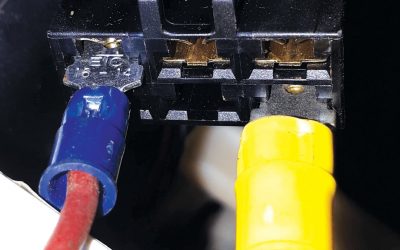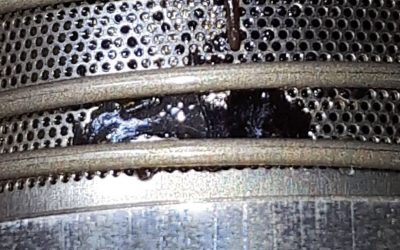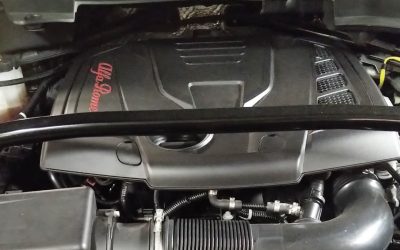You can run a business the same way you live your life. To keep both vital, it’s a good practice to periodically review what you’ve grown accustomed to doing. It’s been nearly three years since “Front Counter Mechanics†last discussed marketing. Business has changed since then, and it’s time to revisit and reconsider some of our assumptions.
Ultimately, all marketing strategies can be reduced to answering this simple question: “How does your business differ from the one down the street?†If your marketing message doesn’t answer this question, it has failed. In the auto repair business, marketing usually promotes either price or professionalism. I pro-pose your marketing strategy should promote both, but only in their proper order of importance: Professionalism comes first, followed by price.
Vehicle owners want professionalism, but they’re reassured by price. If your shop enjoys the reputation of being the best shop in town, people will want to come to you for their repairs. But they won’t, not until they believe they can afford your work. When you advertise price, you don’t have to advertise at the bargain-basement level. Simply advertise what you do at a price that’s fair. Let people know what to expect.
Advertising low prices is easy. Advertising high professionalism takes more work. First, you have to earn the reputation of being a professional. Shouting “We’re the best!†doesn’t cut it. Professionalism is a standing bestowed upon you by your customers and peers. It’s evident in the appearance of your shop, in the quality of your work, and in the way you treat your customers, your employees, your vendors, your family and your community.
How can you promote your professionalism without diminishing it? One way is to advertise your affiliation with nationally recognized certification programs, such as offered by ASE, AAA, Bosch, CARQUEST, Delco, NAPA or other aftermarket corporations and associations. All of these programs have benefits and bring with them varying degrees of public recognition and esteem. However, except for the ASE, each of these programs has multiple missions. None of them is entirely focused on helping you (and others) identify your business as being the “best of the best.â€
But there is one new program that does have this focus: Car Care Council Certified Inspection Centers. All shops are invited to apply to become a Certified Inspection Center, but only five percent of applicants are expected to qualify. The requirements are stringent and are meant to clearly identify a qualified business as the “best of the best.†Rich Davis, vice-president of marketing for the Certified Inspection program, puts it this way:
“To become a Certified Inspection (CI) Center, a shop must qualify as a B.E.S.T. shop. This means it must meet the following criteria:
- Beautiful Facility (a neat and clean waiting room and overall appearance)
- Excellent Technicians (at least one ASE Master Technician)
- Superior Reputation (community involvement, positive image)
- Technology Driven (a commitment to cutting-edge equipment and tools).â€
Car Care Council President Don Midgley adds: “We have to proceed carefully. Only about five percent of the shops fit this niche, and we cannot jeopardize the integrity of the program by lowering the standards.â€
The qualification criteria are similar to those required to become a AAA-Approved Repair Facility, but go several steps further:
- The shop must, at minimum, have one ASE Master Auto Technician on staff. Most CI Centers have several.
- The shop must also have access to current repair procedures, manufacturers’ recommended service intervals, current technical service bulletins and current OEM recalls. A subscription to a computer-based repair information service and Internet access should satisfy this requirement.
- Scan tools must be capable of displaying all current and stored DTCs, display all SIR system codes and display all ABS system codes.
- The shop must also have an oscilloscope capable of dis-playing primary and secondary ignition patterns, an exhaust gas analyzer and micrometers and/or vernier calipers for brake measurements.
- Additional considerations are community standing, community involvement, other industry affiliations, training and awards received.
Once a business receives its initial approval, an annual recertification is required. Recertification is based, in part, upon feedback from customers reviewed by the Car Care Council.
“So,†you may be asking, “what exactly is the Car Care Council, and what’s its agenda?†The Car Care Council was founded in 1968 by a consortium of aftermarket industry manufacturers, distributors and jobbers with the mission of “educating motorists about the importance of maintenance, repair and enhancements for safer, cleaner, better performing vehicles.†The Council’s first public service advertisement was published in the July, 1969, issue of Life magazine. Today, the CCC has over 500,000 published articles to its credit, and provides numerous benefits and promotions, among them: National Car Care Month, the Consumer Automotive Repair (C.A.R.) Show, the Car Care Newspaper Supplement, the Women’s Board, the Car Care Quiz Book, and now, Certified Inspections.
The mission and goals of the Certified Inspection are:
“To provide motorists with a reliable, unbiased appraisal of the overall condition of their vehicles, or one they are interested in buying or selling.
“To offer consumers a level of confidence in their vehicles, and/or establish added value to the vehicle bought or sold.
“To provide consumers with a comprehensive evaluation of their vehicles, and to encourage performance of any recommended repairs or maintenance for a safer, better performing and more enjoyable vehicle.â€
As a 501c(3) nonprofit educational foundation, the Car Care Council attracts broad-based industry support. Industry sponsors of the Certified Inspection Center program include Airtex, Borg-Warner, Bosch, Cardone, Dana Engine Controls, Federal Mogul, Gates, Jasper Engines, MEMA, NASCAR, NGK and Raybestos.
The Certified Inspection is very comprehensive and covers 190 inspection points. The guidelines for the inspection run to 19 pages. Here’s an example taken from Certified Inspection guidelines:
“a1 — Exterior Lighting — A walk-around should include exterior lighting: do all lights work?Are there any cracked or missing lenses? Don’t overlook such things as the ‘opera lamps’ on the door pillars of some luxury cars, or the center grille lights on others. Are all of them functioning?Take a look at the lighted grille you’ll find on a Pontiac Grand Prix or Mercury Sable. Pickups and vans may be equipped with additional exterior lights that need to be checked. For example, turn signals in outside rearview mirrors in Ford Explorers, or midship turn signals on Saab 9000s.â€
On average, the inspection takes a technician about two hours to complete. Once it’s done, the report checklist is produced in triplicate— either manually, or with software provided by the CCC. The customer gets one copy, the shop performing the inspection keeps one on file, and one goes to the CCC. Each inspection form comes with a registration certificate and a doorjamb sticker. Both items include the inspection’s unique 10-digit registration number. The inspection form packet also includes a satisfaction survey postcard to be filled out by the customer.
If you meet the requirements, the cost of being a Certified Inspection Center is minimal: Each Certified Inspection package costs $15. There is an initial $350 fee to become a CI Center, but this fee includes the inspection guidelines, a marketing kit, many promotional items and your first five inspection packages. Thereafter, it costs $200 annually and $15 per inspection. Although some of the promotional materials packaged with the CI Center marketing kit indicate a recommended $99 inspection fee, what you charge for the inspection is entirely up to you.
The CI Center marketing kit provides guidance on how to build a marketing plan and the tools to implement it: camera-ready artwork, sample press releases, sample radio scripts, an extensive offering of promotional brochures, postcards, signage and giveaways. CI Centers also receive the CCC’s “Idea of the Week†marketing faxes.
The benefits of the CI Center program go beyond the prestige of being the “best of the best.†Mark Moses, owner of Moses Automotive in Toledo, Ohio (one of the original CI Centers), has this to say about it:
“The most exciting part of this program is that for the first time many facets of our industry are working together to benefit all. It is also a program that is inclusive of all — it just has high standards! Anyone can participate. If you don’t think your shop will qualify today, make it a shop goal to meet the program standards. There are no smoke and mirrors here. Just a great tool, that, if used well, can change the way you do business forever.â€
I’ve also interviewed the owners of several other shops providing Certified Inspections, and they will be the topic of the next “Front Counter Mechanics.†If you want to learn more in the meantime, just Circle Number 123 on our Reader Service Card or call the Car Care Council at (800) 466-5343, or visit the Certified Inspection website at .





0 Comments